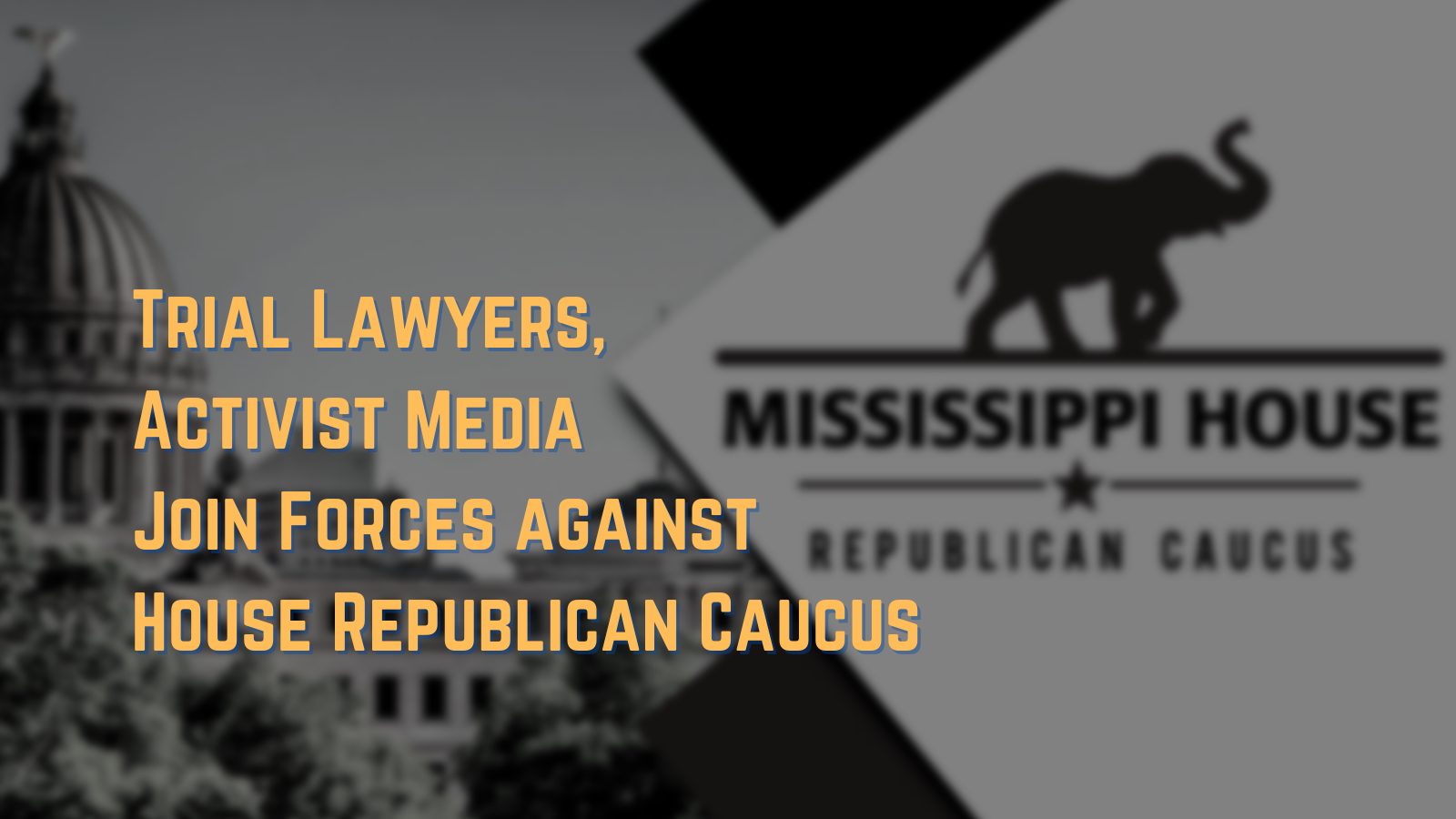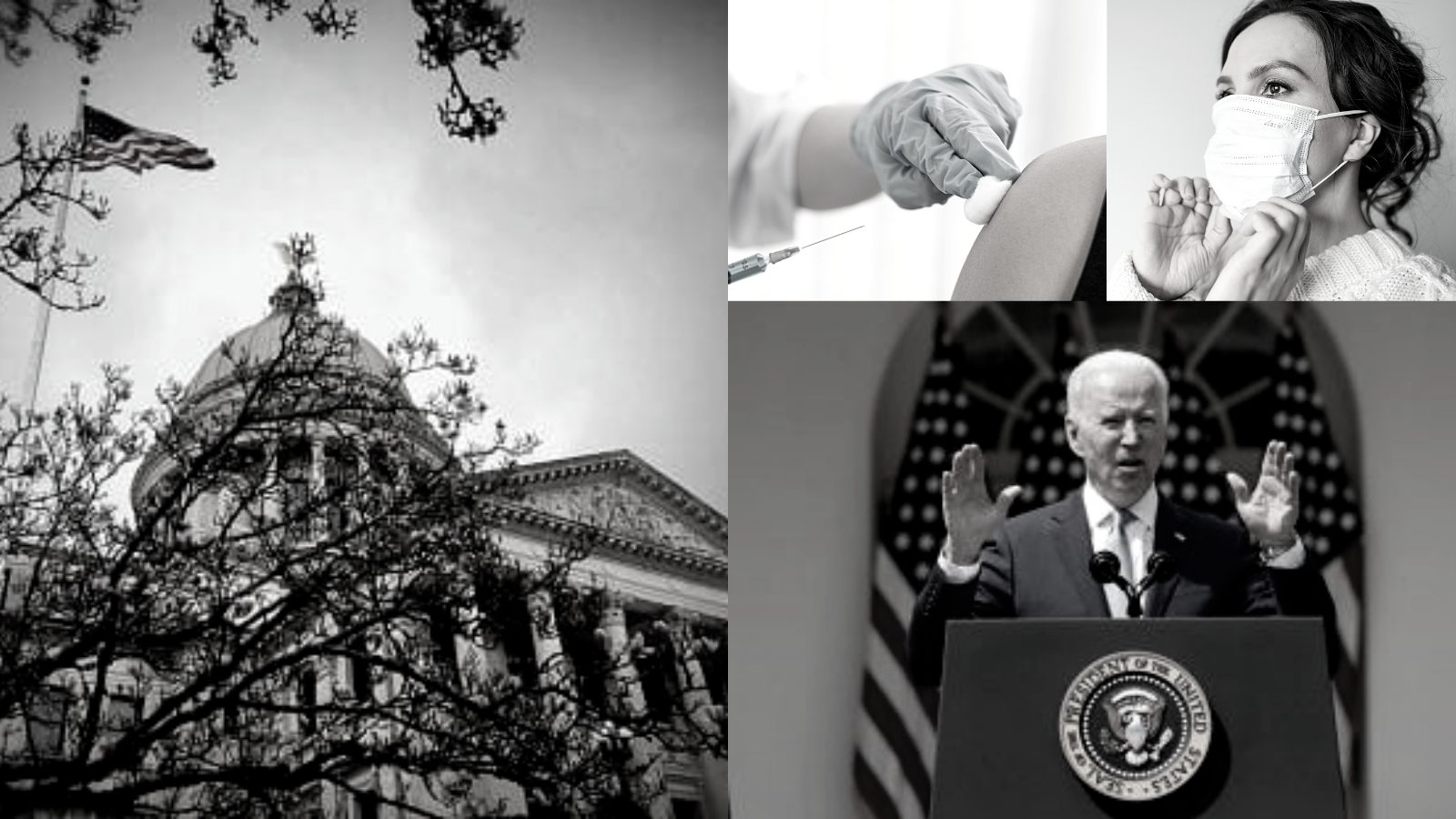
If this “fight” were truly about transparency, it would be hard to argue. But it isn’t. It’s a coordinated political hit against Republicans.
It is no secret that the activist-funded mainstream media in Mississippi hates how Speaker of the House Philip Gunn has effectively used House Republican Caucus meetings over the past decade. Gunn has been able to advance landmark legislation that has improved education, cut taxes, and generally delivered on transformational changes. Now the long knives are coming out against Gunn using the legal process to effectuate what these forces have been fundamentally unable to impact at the ballot box or via media coverage.
The practice of holding political party caucus meetings of all types has been the norm since the dawn of the republic.
In Mississippi, under former Speaker of the House Billy McCoy, majority party Democrats were routinely threatened in caucus meetings if they stepped out of line or voted against the party’s stated interests as conveyed by McCoy and his lieutenants. It was a routine occurrence under the former Mississippi Speaker that got more pronounced after McCoy narrowly maintained the gavel following the 2007 election.
Yet, in the age of a Republican supermajority, it is only now that the practice of political party caucus meetings has become an issue.

In the Mississippi Senate, Lt. Governor Delbert Hosemann, a Republican, opted against caucusing after the question was raised by a Senator whether it violated the Open Meetings Act. This gave the mainstream media and Democrats something to hang their hat on. It opened the door for Democrat interests to coordinate with media partners to challenge caucus meetings as a disrupter under the guise of “transparency.”
With the Senate out of the way, Speaker Gunn became the primary target as he resolutely chose to continue the meetings saying multiple times that caucus meetings were not subject to the Open Meetings Act.
 On March 4, 2022, using the Open Meetings Act as a backdrop and amid a heated session where Senate and House leadership significantly differed on major legislation, State Senator Sollie Norwood, a Democrat, asked the Mississippi Ethics Commission if it is lawful for a political caucus that represents a majority in a legislative chamber to exclude from its meetings any member of that chamber when business of the full body is discussed or decided during that caucus meeting. This was aimed at Speaker Gunn’s continued use of Republican caucus meetings.
On March 4, 2022, using the Open Meetings Act as a backdrop and amid a heated session where Senate and House leadership significantly differed on major legislation, State Senator Sollie Norwood, a Democrat, asked the Mississippi Ethics Commission if it is lawful for a political caucus that represents a majority in a legislative chamber to exclude from its meetings any member of that chamber when business of the full body is discussed or decided during that caucus meeting. This was aimed at Speaker Gunn’s continued use of Republican caucus meetings.
Just over an hour later, Ethics Commission Executive Director Tom Hood, brother of former Democrat Attorney General Jim Hood, responded to Norwood’s question, stating that the Commission has no authority to issue advisory opinions about the Open Meetings Act as it does under the Ethics in Government Law. Hood added that such a question would need to be directed to the Attorney General’s office. Senator Norwood later told Y’all Politics that he had no intention of making a request on the matter to the AG.
Then, on March 14, despite it being well known that caucus meetings are not open to the press or public, Mississippi Free Press reporter Nick Judin was not allowed to remain in a House Republican Caucus meeting after he attempted to stay in the room. That rejection of Judin’s attendance was amplified as his blog and others feigned hysteria and outrage, posting articles on the issue on the same day, March 21, a week later.
The result was an effort to attempt to paint Speaker Gunn and House Republicans as violating the Open Meetings Act when such caucus meetings have never been subject to those parameters.
Now, April 13, the Mississippi Free Press announced it has partnered with the state’s leading trial lawyer group, the Mississippi Center for Justice (MCJ), to file a supplemental complaint with the Ethics Commission alleging that Speaker Gunn and House Republicans violated the Open Meetings Act when they did not allow Judin to attend their caucus meeting.

The lead attorney on the matter for MCJ is Robert McDuff, director of the George Riley Impact Litigation Initiative. According to his bio on the MCJ website, the Initiative McDuff runs was launched by MCJ in 2017 to pursue litigation around issues affecting large numbers of Mississippians. It has filed cases relating to voting and election issues, racial discrimination, discrimination based on sexual orientation, reproductive freedom, police misconduct, consumer protection, and prisoners’ rights.
In a piece written today by Mississippi Free Press Editor Donna Ladd entitled, “We Just Amped Up Our Fight To Attend Party Caucuses At The Capitol. Here’s Why,” she admitted that the whole incident was targeted for Gunn and House Republicans.
“Nick and I knew that if we had a chance of doing anything about the closed meetings, we had to be barred from one of them, which also means you can then file a complaint with the Ethics Commission,” the blog editor wrote.
Ladd paints their “fight” as a means to increase transparency, but the partisan backing of the publication under the ruse of “non-partisanship” is self-evident. Funded with a who’s who of liberal activists and foundations, the non-profit entity has not been functioning long enough to have a form 990 disclosure available online to cipher the exact source and amounts of money flowing into the organization.
For his part, McDuff is a respected trial attorney. The fact that he went to the Ethics Commission on behalf of the blog first instead of filing in court for injunctive relief is telling. Had there been a clear law violation, McDuff’s history would indicate he would be asking a judge for immediate relief.
Again, this has every appearance of a pre-planned, coordinated media hit against one man, Philip Gunn, who did not back down when challenged and who has been largely effective in producing policy changes using the identical parameters his predecessors employed.
As Y’all Politics previously reported, the law itself, much of which was enacted under Democratic legislative leadership over the years, provides for clear exemptions to the Open Meetings Act for “Legislative subcommittees and legislative conference committees.” It also defines a meeting as “an assemblage of members of a public body at which official acts may be taken upon a matter over which the public body has supervision, control, jurisdiction or advisory power…” Discussion of a bill or a policy in an unofficial capacity in a caucus meeting could easily be argued as a de facto exemption from that policy. Official discussions on policy are governed by chamber rules, which are done in committee and on the floor of the respective chamber. Plus, no state law exists to address these caucus meetings, leaving it up to interpretation by a ruling authority should the Commission or a court decide to opine on the matter.
Speaker Gunn told Y’all Politics on Wednesday afternoon that caucus meetings in Mississippi are conducted just as they are across the country. He again reiterated that caucus meetings are not considered meetings of a public body.
 “The House Republican Caucus gatherings are not considered meetings of a public body covered by the Open Meetings Act,” Gunn said. “It has been treated that way for years here and every caucus leader I have talked to in other states takes the same position. It is standard practice around the country for such caucus meetings to be private meetings.”
“The House Republican Caucus gatherings are not considered meetings of a public body covered by the Open Meetings Act,” Gunn said. “It has been treated that way for years here and every caucus leader I have talked to in other states takes the same position. It is standard practice around the country for such caucus meetings to be private meetings.”
It will be interesting to see how the Ethics Commission chooses to respond to this latest attempt to draw them into what is now clearly a partisan battle aimed at diluting Republican unity in the Mississippi House.
You can read the full filing by McDuff on behalf of the Mississippi Free Press below.
Supp Complaint MFP Judin to Ethics Commission by yallpolitics on Scribd










